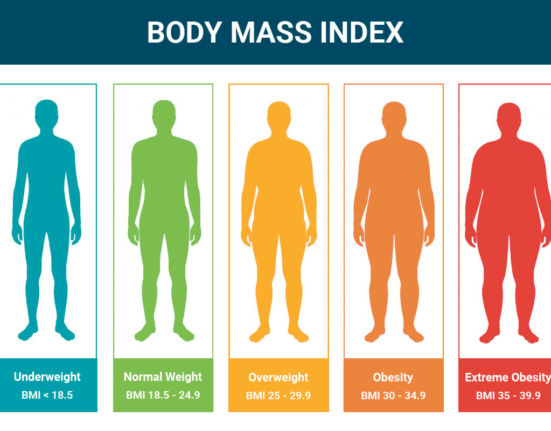Some examples of situations that require urgent or emergency dental care include:
- Severe toothaches or dental pain that is unrelieved by over-the-counter medication
- Significant tooth fractures, lost fillings, or other damage that leaves tooth structure exposed
- Abscesses with facial swelling
- Uncontrolled bleeding in the mouth from injury or surgery
- Knocked out or displaced teeth after dental trauma
How to Deal With Dental Emergencies
If facing a dental emergency, there are a few key steps to take:
- Try to temporarily relieve pain and swelling using cold compresses, OTC pain medication, clove oil, or temporary filling kits until a dentist can be seen.
- Contact your regular dentist to see if they can take urgent appointments or have on-call emergency hours.
- Find your closest available emergency dentist that can promptly evaluate and definitively treat the issue. Search NHS emergency dental care clinics if uninsured.
- Head to a hospital ER only for traumatic knockouts requiring reimplantation procedures or significantly smashed/lacerated facial complex injuries impairing breathing or requiring plastic surgery interventions.
Affordable NHS Emergency Dental Care
Many reliable dental offices like SW19 Confidental Dental Clinic offer emergency NHS dental appointments when available in between scheduled visits. NHS covers emergency pain relief, abscess drainage, tooth extractions, and temporary stabilization care for substantially reduced rates over private pay fees. Check provider websites in advance for NHS emergency treatment availability to utilize when sudden dental disasters strike.
The key is acting quickly when facing emergency dental symptoms to prevent exacerbating more complex long-term issues. Utilize available NHS low-cost urgent resources in London whenever possible.
Here are some tips on handling common dental emergencies:
Toothache
- Rinse mouth with warm salt water to clean area and reduce inflammation
- Income over-the-counter pain medication like acetaminophen or ibuprofen
- Use a cold compress on outside of cheek to reduce pain
- Make a dental appointment or seek urgent care if pain persists
Broken or Chipped Tooth
- Carefully clean injured area with warm water
- Apply a cold bandage to limit any swelling
- Avoid eating on affected side
- Seek urgent dental treatment
Knocked-Out Tooth
- Find tooth, pick it up by crown (not root), rinse off gently if dirty
- Don’t wipe off tissue attached to root
- Push tooth gently back into socket if possible
- If unable to reimplant, store in milk or saline solution
- Seek emergency dental care ASAP to reinsert tooth
Broken Dentures/Retainers
- Locate any broken pieces and bring them with you to the dentist
- Apply orthodontic wax or temporary adhesive to blunt sharp edges
- Schedule urgent repair appointment
I hope these tips help provide some guidance on what to do until professional dental help is obtained. Staying calm and acting quickly are key to preserving teeth and minimizing further injury. Let me know if you have any other emergency dental questions!
Face/Jaw Injuries
If you experience any trauma to the face or jaw causing bleeding, swelling, pain, or difficulty opening your mouth, seek prompt medical help. Facial injuries can be signals of fractured or displaced jawbones, torn soft tissues, and other damage needing emergency medical evaluation.
Abscesses
Abscesses are severe infections around the root of a tooth. Symptoms include throat swelling, pus drainage, difficulty swallowing, and intense throbbing pain. Abscesses require urgent dental care. Rinse with warm salt water while waiting for your appointment. Taking over-the-counter pain relief medication can temporarily alleviate discomfort in the interim.
Lost Fillings and Crowns
If a filling or dental crown falls out, make an effort to locate the missing piece so the dentist can attempt re-cementation. Place the hardware in a baggie until your appointment. If unable to find, still seek prompt dental evaluation for a replacement restoration. Use dental wax or gum to plug the open space temporarily to prevent sensitivity until corrected.
Bleeding after Dental Surgery Some minor blood mixing with saliva for 12-24 hours after having teeth removed is normal. But bright red streams of blood indicate a surgical wound has reopened. Attempt to control heavy bleeding by biting down on folded sterile gauze pads positioned directly over the surgical site for 30-60 minutes. Sit upright and avoid rinsing for clot stabilization. If bleeding fails to stop, call your dentist or seek emergency care.
Broken Braces
Occasionally, orthodontic wires loosen or snap or brackets come loose from bonding cement, especially with new adjustments. Use orthodontic wax to pad sharp poking and schedule urgent repair to prevent braces damage or shifting teeth alignment. In extreme emergencies involving mouth or facial injury from dislodged appliances, go to an emergency room.
Denture/Retainer Adjustments
If a denture or clear aligner feels drastically looser or develops uncomfortable rubbing spots, an urgent realignment appointment ensures proper fit important for appliance function and preventing tissue irritation. SW19 Confidental Dental Clinic, Wimbledon Dentists can quickly relieve pressure points and check for structural damage needing laboratory work prior to deep tissue injury occurring.
I hope these supplemental tips help expand on handling some additional urgent dental situations. Let me know if you need any other Wimbledon Emergency Dentist NHS dental care in London specifics!








Leave feedback about this